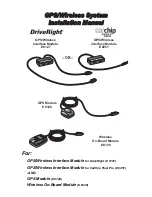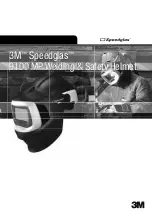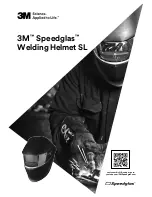
23
Integrated Capping Shutter
6. Integrated Capping Shutter
6.1 Light-Tightness
Due to the design of mirror-reflex film cameras, stray light
may pass around the mirror shutter onto the film when the
camera is not running. For normal film shots this is not a
problem, as the affected images fall into the camera run-
up, which is usually not used anyway. On singleframe shots
however, the stray light, which can fall onto the film around
the mirror shutter during interval time, can affect the quality
of the exposed singleframes.
The maximum interval time which can pass between exposing
two singleframes without the images being affected is re-
ferred to as the light-tightness of the camera. The light-
tightness on normal mirror reflex cameras is very short due
to the general construction. On the standard ARRIFLEX 435
this interval can be less than one second under disadvan-
tageous circumstances.
To prevent light from falling onto the film during the interval
time, so-called capping shutters are used. These capping
shutters are usually leaf shutters which are mounted in front
of the camera lens. As long as the leaf shutters are closed,
no light can reach the lens or the film. The capping shutter
is opened just before exposure of the singleframe and then
closed again. A disadvantage of this type of capping shutter
is that there is no way to evaluate the image through the
viewfinder – the lens and therefore also the viewfinder
remain light-tight.
The Integrated Capping Shutter on the other hand, blocks
the light behind the mirror, i.e. directly in front of the film
gate. Thus, viewing the image through the viewfinder is
always possible. However, since light is admitted into the
camera-body, even with the Integrated Capping Shutter the
camera is only light-tight for approx. one hour
under
normal lighting conditions
. For interval times of over an
hour, an external capping shutter should be used in front
of the lens
in addition to
the Integrated Capping Shutter
(see chapter External Capping Shutter).
It is also necessary to close the eyepiece of the viewfinder
to prevent light form leaking through the viewfinder into
the camera.
Summary of Contents for ICS-1
Page 8: ...8 26 pin socket Installation ...
Page 20: ...20 ...
Page 22: ...22 ...
Page 46: ...46 MODE key SEL key SET key Camera Display ...
Page 50: ...50 ...
Page 56: ...56 ...
Page 58: ...58 Technical Data ...
Page 64: ...64 Index ...
















































